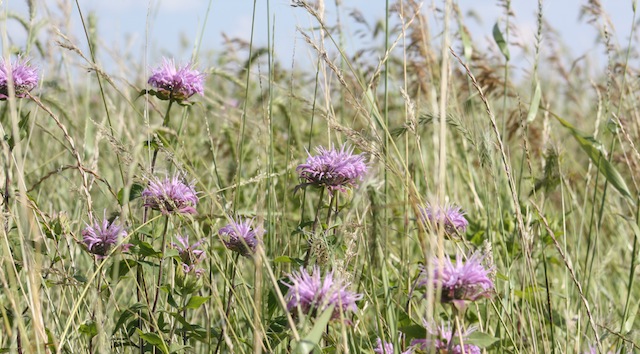In 2013, the Minnesota Legislature passed legislation (H.F 976) that included directives requiring the Minnesota Department of Natural Resources (DNR) to establish a pollinator habitat program. The legislation grew out of concern from commercial beekeepers witnessing catastrophic bee losses. As the legislation evolved and discussions continued, those involved realized it was more than just commercial honeybees showing stark declines; many pollinator populations were plummeting.
The legislation required best management practices (BMPs) and habitat restoration guidelines for pollinators on DNR lands. Further, restoration activities conducted on state lands, or with the aid of state funds, needed to include an appropriate diversity of native plant species to provide habitat for pollinators throughout the growing season. Interestingly, the available literature on habitat needs of pollinators recommended burning only part of a habitat unit, spot spraying instead of broadcast spraying for invasive plants, and using management practices, such as conservation haying and grazing, to increase plant diversity and structural heterogeneity. Fortunately, the DNR was already employing these practices when managing for waterfowl and migratory songbirds. So, in the case of some BMPs, the recommendation was to ‘keep doing what you’re doing, just do it a little more’.
The habitat restoration side of the statute was also in line with practices DNR was implementing. For example, over at least the last decade, DNR has only planted native species with forty or more species in the seed mixes. DNR has tried to use local ecotype seed, but often its availability Is limited, which is not an uncommon problem for those conducting habitat restoration projects using native species. Ultimately, as interest in both pollinator health and prairie restoration expands, there is a need for more seed and seed mixtures consisting of native plant species.
As you can see, the Minnesota Department of Natural Resources is taking pollinator issues seriously. In fact, we have a long history of conducting habitat management and restoration activities to benefit pollinators. Just as impressive, some 42 pollinator research or monitoring projects are ongoing or have been submitted for grant funding in MN. To learn more contact Greg Hoch and/or view the websites below.

